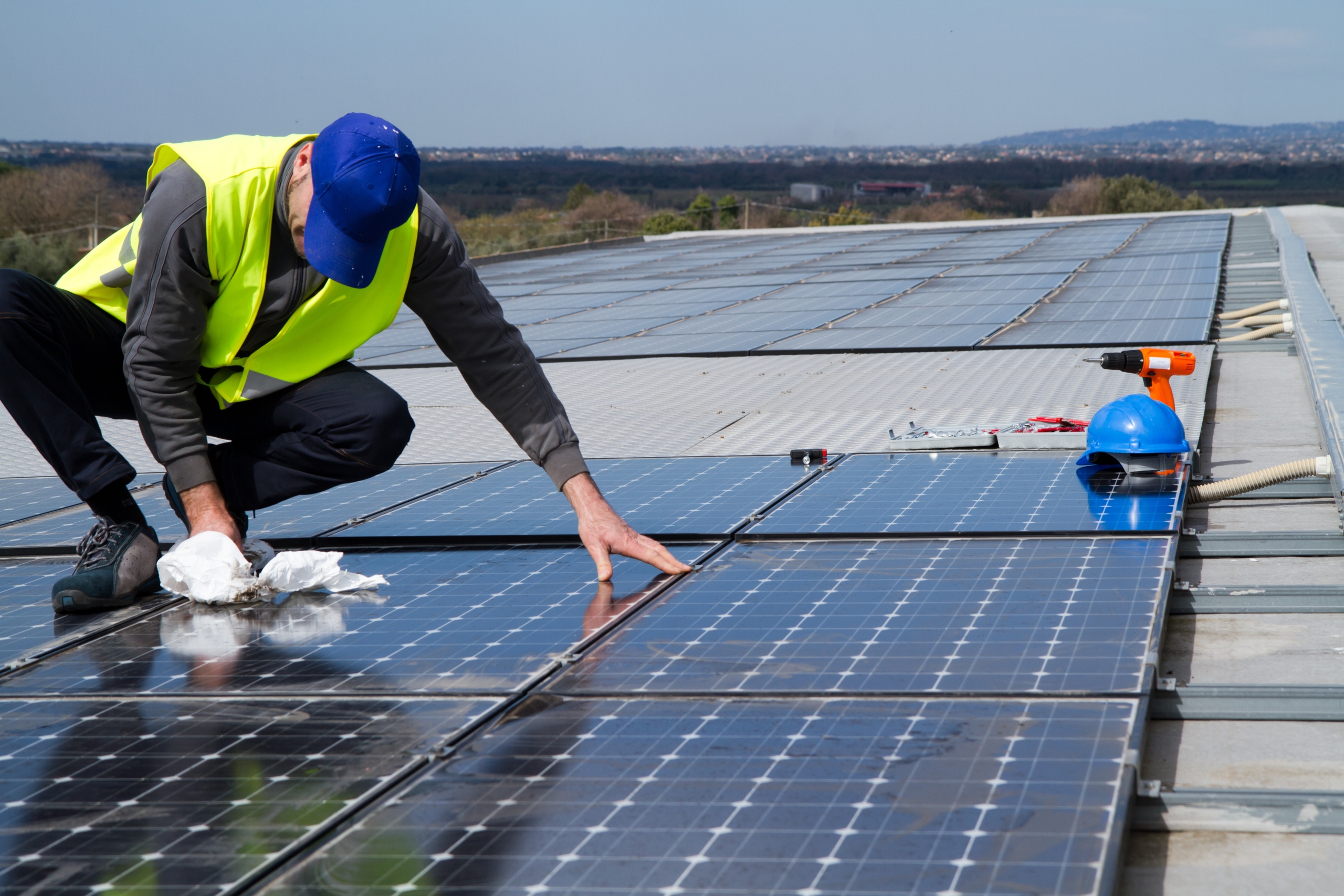Solar cleaners are essential for getting the most electricity output efficiency; however, this does not mean extremely harmful chemicals must be used to get the job done. If your facilities or commercial properties use solar panels to operate, then you already know how soiling on the mirrors creates problems. Even if you offer a washing service for these panels, it is apparent that a quality, environmentally friendly cleaner is necessary to maintain performance and duration of life.
Depending on the area and other conditions, soiling can be minor or extensive with rates as high as one percent a day. Even one percent is capable of degrading energy output by half when washing does not occur routinely. Dirt removal options vary according to the area and locations with water restrictions require effective cleaners to keep panels efficient.
Debris such as pollution, dust, and leaves prevent sunlight from reaching the cells in solar panels. Excessive dirt results in decreased electricity production, which brings operations to a crawl or even a complete halt. While other factors obviously affect performance, dirt is the easiest problem to fix. The loss rate will vary significantly based on geographical area, removal processes, and applied cleaners. In many cases a rain is not enough to keep them dirt free and the right equipment along with a dependable solar cleaner is necessary.
Tips for Choosing a Solar Cleaner
In reality a rain is not enough to keep anything dirt free. Just take a look at your car, as it will still have dirt even if it rains every day. Not only do dirty panels experience decreased efficiency, they also extend the pay back period of this effort by a few years. An effective solar cleaner is a must and the safer it is for the environment, the better it will also be for buildings, panels, and employees. Not every available cleaner is going to be safe for handling or the surrounding atmosphere. It is worthwhile to choose a cleaner that is not going to pose significant health or environmental problems. Here are a few things to consider when choosing a solution for industrial or commercial use:
- How will it be applied?
- Will runoff stain the building?
- Does it have to be disposed of as waste?
- Is it environmentally safe?
- Is it toxic to handle?
- Are better options available for continued use?
- Will it harm the panels, animals, or local plant life?
Runoff is a big concern because if the cleaner is toxic, it poses danger to every living thing in the area. Additionally, certain solar cleaners could damage the panels thus resulting in further costs. The wrong choice could harm local wildlife, pets, and foliage whereas highly toxic options will result in ozone depletion as well as health issues.
Not every product that says it is environmentally friendly truly is thus making it essential to know what you are buying. At Ecolink, we offer an effective, environmentally friendly solar cleaner for industrial and commercial use. Contact us today to see how our solar cleaner will aid in maintaining energy efficiency and to learn about the many options we offer for safer, environmentally friendly cleaning.















